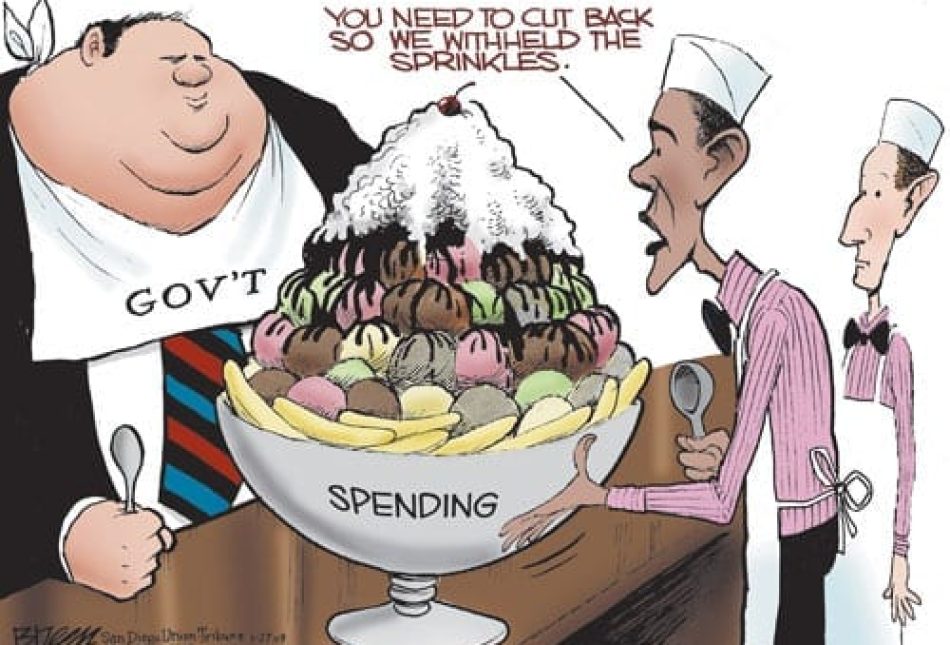Don’t Raise Taxes, Cut Spending Bloat

Having stood firm against tax hikes during the October special legislative session, New Mexico Gov. Bill Richardson seems to have switched directions and is now pushing to raising New Mexicans’ taxes to fill in the massive budget deficits the state now faces.
His tax hike commission is now holding a series of meetings to decide how to pluck the proverbial goose (taxpayers) with the least amount of squawking. This, despite double-digit unemployment, the toughest job market in decades, and the fact that many New Mexico families are already struggling to pay their bills.
While tax revenues have been reduced in recent years, the reality is that our problem is the result of spending massive amounts of taxpayer dollars on projects that simply do not qualify as “necessities.” The $400 million Rail Runner, $225 million Spaceport, a $40 million supercomputer, and tens of millions of dollars in annual payouts to the film industry are just a few of the most high-profile ones.
Unfortunately, most of these projects or programs are already in place and unlikely to be abandoned either due to the large investments already made in them or the powerful political forces defending them (or both).
Nonetheless, we at the Rio Grande Foundation have outlined several ideas for cutting the budget. These include slashing the bloated government work force; Medicaid reform; and cost-saving, safety-enhancing criminal justice reforms, just to name a few. So far, the governor has not taken steps to implement these policy ideas. In fact, the governor vetoed efforts to reduce the large number of so-called “exempt” employees he has hired.
While Richardson seems hell-bent on erasing his legacy as a tax-cutter, there is yet another option out there that could result in real budget cuts that result in the least amount of harm possible. Ironically, the state leading the way in these reforms is another state that has a long history of political corruption, Louisiana.
Rather than simply raising taxes on struggling families, Pelican State policymakers, led by Gov. Bobby Jindal, have embarked on a wide-ranging set of government reforms designed to reduce the size and cost of government.
They created a Commission on Streamlining Government this year to identify over $1.5 billion in cost savings through streamlining, consolidation and elimination. They passed legislation granting more flexibility in cutting spending in protected “silos.” Gov. Jindal has eliminated thousands of positions from the state budget and over 70 unnecessary or inactive state boards and commissions. The Louisiana Division of Administration is developing a range of privatization proposals within each of its departments, and it’s also piloting a new budgeting approach designed to fund priorities and drive performance.
And this is all just a start.
It’s already paying off. Ratings agency Fitch upgraded Louisiana’s bond rating last month, specifically citing the state’s focus on spending control and streamlining as influencing factors. This alone will save taxpayers millions in avoided interest costs over time.
Rather than creating a commission to figure out the right combination of grocery, capital gains, personal income and gross receipts tax increases, Richardson should take a cue from Louisiana.
New Mexico policymakers face a simple choice: Remain lost in the fiscal forest, thus erasing the progress in recent years in reducing taxes, or follow the lead of Louisiana, which is blazing a trail out of the budgetary wilderness.
Paul Gessing is the President of New Mexico’s Rio Grande Foundation. The Rio Grande Foundation is an independent, non-partisan, tax-exempt research and educational organization dedicated to promoting prosperity for New Mexico based on principles of limited government, economic freedom and individual responsibility.

